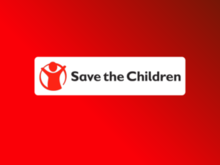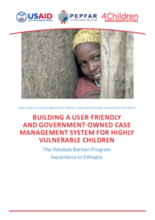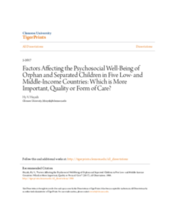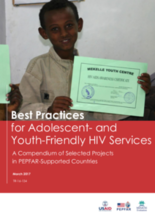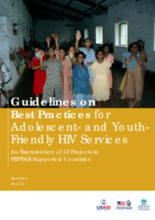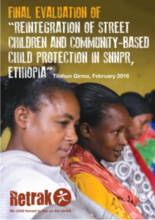childrens_living_arrangement
children_living_without_bio
Displaying 61 - 70 of 158
This presentation describes the findings from a 2015 Save the Children study on kinship care in Ethiopia, Kenya and Zanzibar.
The CPC Learning Network’s Beth Rubenstein and Matt MacFarlane will host a webinar on Friday, June 9th, at 10am EDT to share findings and lessons learned from two pilots of the Measuring Separation in Emergencies (MSiE) project, an inter-agency initiative intended to strengthen emergency response programs for unaccompanied and separated children. They will also offer recommendations for next steps in the development of tools and methods in the field.
This case study describes the coordinated care and case management system for highly vulnerable children and their caregivers implemented by the Yekokeb Berhan program in Ethiopia.
This study explored the extent to which components of quality of care predicted psychosocial well-being of orphaned and separated children (OSC), as well as the extent to which these components of quality of care and demographic factors moderated the associations between care settings and psychosocial well-being of orphaned and separated children (OSC).
This compendium contains the findings from a review of 13 projects providing HIV services to adolescents in PEPFAR-supported countries.
This document examines 13 projects serving HIV services to adolescents in PEPFAR-supported countries and provides a set of guidelines on best practices for adolescent and youth-friendly HIV programs.
This brief paper highlights some of Young Lives key findings on violence affecting children, exploring what children say about violence, how it affects them, and the key themes that emerges from a systematic analysis of the children’s accounts.
This document is an evaluation of Retrak’s reintegration of street children and community-based child protection project in SNNPR, Ethiopia.
ACPF is holding its Seventh International Policy Conference on the African Child (IPC) under the theme:“Our Hidden Shame: Crimes and Extreme Violence against Children in Africa” on 7-8 November 2016 at the United Nations Conference Centre in Addis Ababa, Ethiopia.
This country care review includes the care-related Concluding Observations adopted by the Committee on the Rights of Persons with Disabilities during the sixteenth session (15 Aug 2016 – 2 Sep 2016) of the Convention on the Rights of Persons with Disabilities.

